With Porto to the North and Lisbon to the south, the charming and historic Portuguese city of Coimbra is often overlooked by expats. However, Coimbra possesses a unique character that sets it apart from its larger peers.
Those living in Coimbra get to enjoy the vibrancy that comes with being immersed in a historic University town alongside the slightly slower, more relaxed way of life that Portugal is so famed for.
If you are considering living in Coimbra, getting a true sense of the city’s various pockets of personality is a great place to start.
Whether you dream of steep cobbled streets overhung by balconies and bougainvillea blossoms—with the lilt of a Fado singer in the distance—or an ultra-modern pad with every amenity and a water-front view, Coimbra is likely to tick every box.
As to whether the city’s broader energy is up your street, read on for our ultimate guide to living in Coimbra as an expat, and decide for yourself!
Is Coimbra a good place to live?
Yes, Coimbra is perfect if you are looking for the following perks:
- a charming and tranquil city livened up by endless youthful energy that comes with a big student population;
- a lower cost of living while having all the necessary amenities on the doorstep;
- a slower pace of life;
- an opportunity to immerse in Portuguese traditions;
- easy travel connections with Porto and Lisbon.

Coimbra is a compact and attractive city with a population of around 140,000, although that number tends to swell and shrink thanks to its student population.
The city’s aesthetic is defined by the majestic mount of the University district, which rises steeply from the banks of the River Mondego, a large waterway that winds right through the heart of the city.
As one of the oldest educational institutions in the world, Coimbra University is a great source of pride for city natives.
The University’s monumental structures blend with Roman relics, Moorish fortifications, and the historic houses of the Alta area, an uptown district, to form a stunning vertical scene enjoyed by much of the rest of the city.
Meanwhile, those who have made the climb up to visit the ancient Torre de Universidade or the Baroque Bibliotec Joanina, will be rewarded with a spectacular panorama over the river below and beyond; while also standing within a UNESCO world heritage site!
A city synonymous with students
Unsurprisingly, Coimbra’s general vibe is shaped by the presence of youth. However, this doesn’t necessarily reflect the clichés one might imagine!
While Coimbra’s annual influx of young people means it offers a lively evening atmosphere, the students also provide residents with a regular dose of tradition and culture—particularly in the form of public student rituals and romantic Fado singing.
Speaking of Portuguese Fado music, Coimbra is famed for its own distinct style. While many of the celebrated Fado singers of Lisbon are female, in Coimbra, it is traditional for the guys to do the serenading.
The practice is very much tied to the university, with male singers taking on a troubadour-like role.
Coimbra’s Fado songs are often laced with tragedy and comedy in equal measure, with a fair few aiming to steal the heart of a girl. It’s not uncommon to see a singer poised below the window of his sweetheart!
Coimbra: something for everyone
With all of the above in mind, Coimbra has a great deal to offer for all manner of different expats.

Young families, professionals working from home, and retirees will likely all enjoy the laid-back attitude and friendly culture of Coimbra in equal measure.
Certain areas offer greater appeal for those with children, while those aiming to retire within the city may prefer to look for property in the city’s flatter river-side areas, so those steep cobbled streets don’t have to be tackled every day!
Entertainment and amenities
In terms of amenities and entertainment, there is much to take in. The choice between large modern grocery stores or bustling city markets with fresh meat, fish, fruit, veg, and flowers in abundance, makes the weekly shop more interesting!
Those wanting a retail fix can head to one of the major malls—the Forum and Alma Shopping—or hit the many boutiques in the Baixa.
Whenever the sun shines, it is customary to embrace café culture, take a seat at a shaded street-side table, and sip on espresso, a beer, or a glass of wine.
English speakers will be happy to know that the city’s cinemas mostly show films in English with subtitles. However, those hoping to head to the theatre might want to polish up their Portuguese first!
Because Coimbra isn’t quite the international hub that Lisbon is, the city rarely attracts big-name international bands or touring art exhibitions.
That said, there is still a range of live music venues to choose from. Do check out the Irish bar beside Praça de Republica for its energetic band nights and international drinks menu.
Alongside Coimbra University itself, the city is known for its educational options.
A range of high-caliber state, private, and international schools are on offer for those living in Coimbra with children.
For further learning, there is no shortage of historical museums providing a fascinating insight into the storied past of Portugal and Coimbra itself. The city also boasts a spectacular Botanical Garden, complete with a giant bamboo grove!
Is it expensive to live in Coimbra?
For many expats living in Portugal already means benefiting from a lower cost of living. Coimbra takes this benefit even further as it’s cheaper than other popular expat destinations in Portugal, such as the Algarve, Porto, or Lisbon.
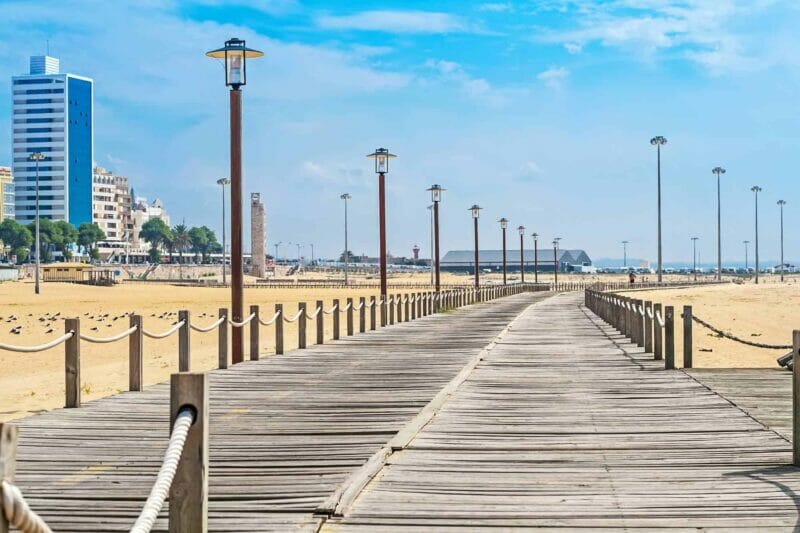
Property in Coimbra
Compared to such countries as the UK and the USA, property prices in Portugal can seem too good to be true. While not quite as cheap as some of the rural areas inland, Coimbra offers true steals at close to half the price of their Lisbon equivalents.
In terms of real estate, Coimbra is an architectural patchwork, with old fixer-uppers, cheaper accommodation, and plush luxury options often mixed in together.
One gets a strong sense that the city has gradually grown around small villages as high-rises teeter next to crumbling farmhouses!
Those looking to the desirable Alta, Baixa, and Santa Clara areas might well snap up a one-bedroom apartment in need of renovation for under 100,000€—or they might have their eye on one of the city’s more decadent historic homes or modern developments.
Those hoping to rent can anticipate anything upward of 500€ per month for a one-bedroom apartment or 750€ per month for a two-bedroom property.
Our guide on renting a property in Portugal will tell you all about the process and how to protect yourself as a tenant.
Of course, the scale does increase from there, but the city offers something for most budgets. Utilities are also affordable, with a couple likely to anticipate spending 60-70€ per month on their electricity and water bills.
Living expenses in Coimbra
Since much of the city is within walking distance and public transport is both cheap and reliable, many Coimbra residents skip keeping a car altogether.
While supermarket shopping is comparable to other countries price-wise, bars and restaurants are happily far cheaper.
Expect to enjoy a cold beer at the bar for around 1.50€ and a hearty meal for anywhere between 10€ and 30€ per person, depending on the eatery. Watch out for student haunts and restaurants that offer a “prato do dia” (plate of the day) to get an even better bargain.
Is Coimbra safe?
Portugal, on the whole, is a safe country, and Coimbra enjoys low crime rates when compared to other European cities.

While residents can be pretty confident in the safety of the streets and the low rates of theft, common sense habits such as locking your home and car while not leaving valuables in sight are prudent.
It’s also worth keeping your purse closed and your back pocket empty when the tourists arrive in the summer, as pickpocketing can be an issue in crowds.
The pros and cons of living in Coimbra
While Coimbra’s many facets would likely each be considered a positive to the right person, every expat is inevitably on the hunt for something different. Here are some of the possible pros and cons of living in Coimbra.
The pros of living in Coimbra
1. Affordable accommodation
Coimbra offers fantastically cheap homes to rent and buy when compared to much of the USA and UK, Europe at large, or even nearby Lisbon.
2. Historic architecture
From the University’s regal buildings to the city’s many historic neighborhoods, Coimbra is a feast for the eyes.
3. A temperate climate
Coimbra offers a lot of sunshine while being a little cooler than Lisbon or the Algarve. Temperatures range from around 5°C / 41°F on a cold January night to 28°C / 82°F on a sunny August afternoon.
4. Vibrant student culture
A thriving student culture means that the city’s bars, venues, and restaurants are lively and diverse while being relatively inexpensive.
5. Fantastic public transport connections
Coimbra is well-networked, with cheap and plentiful inner-city bus routes and top-notch national bus and train connections. There are almost 30 express trains a day to Porto and about 20 to Lisbon, with the journeys taking under 2 hours to reach your destination.
6. A safe and friendly city
With low crime rates and a welcoming attitude to foreigners, Coimbra quickly feels like home. Grab your phrasebook and anticipate a mixed bag in terms of meeting locals who speak English!
The cons of living in Coimbra
1. Not quite the international hub
While Coimbra offers a great range of things to do, it doesn’t attract the array of international entertainment that Lisbon does.
2. A vibrant student culture (again)
They don’t call Coimbra “a cidade dos estudantes” for nothing. While student culture is reasonably respectful, Friday nights can still get a little rowdy!
3. Limited employment opportunities
Those hoping to find work in Coimbra will find themselves competing with students for a limited number of low-paid positions. Remote work may be a better option for expats living in Coimbra.
4. Coimbra is a siesta city
As with any destination in Portugal, don’t plan on getting things done on your lunch break. Everything closes for at least two hours!
The best areas to live in Coimbra
We touched upon the quaint and charming historic Alta earlier. Property hunters may also want to consider the mixed-heritage Baixa area for lower prices, but perhaps also louder students.

The cosmopolitan Santa Clara is just a bridge stroll from the city’s center and offers both culture and family-friendliness.
Meanwhile, Solum, Sousa Pinto, Vale de Flores, and the higher end of the Norton de Matos also provide some great aspirational and kid-friendly neighborhoods.
As with many pockets of the Baixa, the lower part of the Norton de Matos and Celas can become quite dominated by student nightlife.
If you fall in love with a particular location, it might be wise to book into a nearby hotel or Airbnb for a night or two and see how the locale transforms when night falls.
Living in Coimbra – summary
Coimbra is a uniquely charming and compact historic city with lots to offer anyone ready to embrace Portugal’s slower way of life.
Those who enjoy the contagious energy of a vibrant student culture with a side of Fado singing will love every minute of living in Coimbra.
Others who prefer a calmer setting will do well to research each area thoroughly during term time before deciding if it’s suitable for them.
Coimbra is an inexpensive place to live, with a fantastic array of fine dining options and cultural exhibits to explore. A steady influx of both students and tourists adds an air of multiculturalism, although the city isn’t as much of an international hub as Lisbon or Porto.
What the city does have in abundance is character, with endless cobbled streets and alleyways to explore; gardens, museums, and monuments; and a great deal more nearby.
The beach destination of Figueira da Foz and Bussaco national park are both close enough for a day trip. What could be better than that?
Other popular locations in Portugal to consider:
- Living In Setúbal
- Retiring To Madeira
- Living in Viseu
- Living in Cascais
- Living In Sintra
- Living In The Azores
You might find useful:
- Best Places To Live In Portugal – a detailed overview of Portugal’s most popular locations for expats.
- Living In Portugal As An Expat – The Absolute Relocation Guide – an expat guide to moving and settling down in Portugal that includes residency options, healthcare, cost of living, the pros and cons, and more.
- The Non-Habitual Residence Regime, Foreign Pensions And Tax In Portugal – all about the NHR and how to take advantage of its special tax regime when you retire to Portugal.
- Didn’t find what you were looking for or need further advice? Comment with your question below, and we will do our best to help.


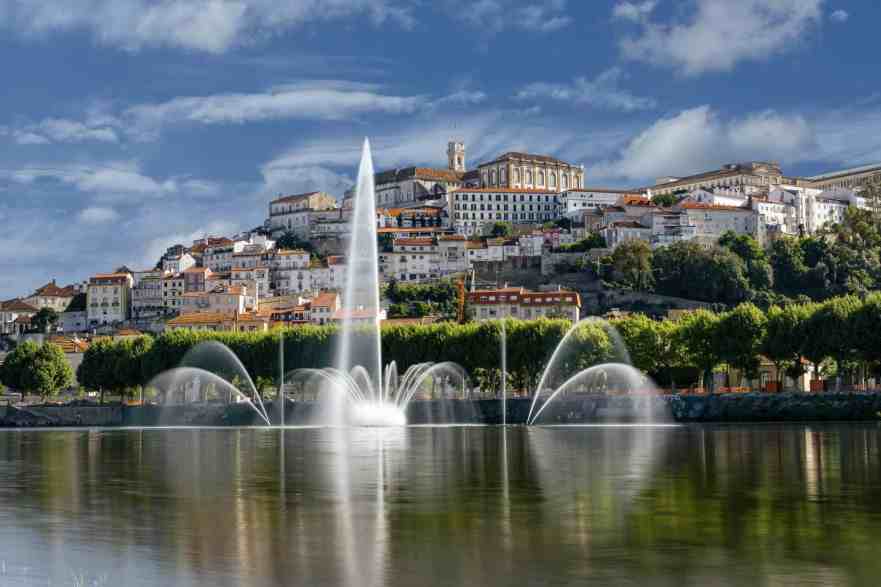
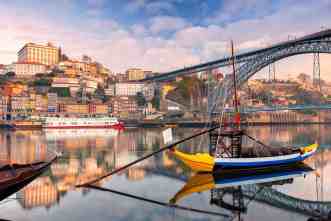
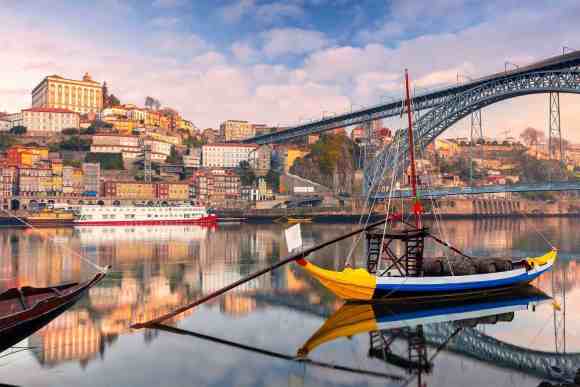
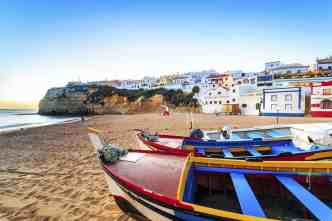
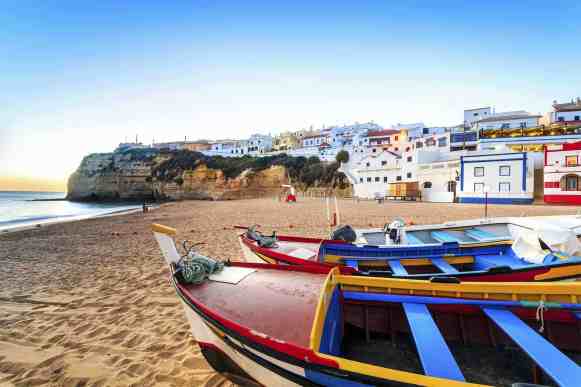




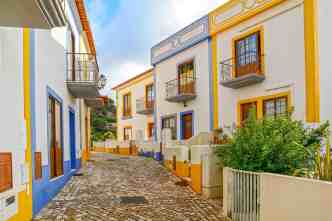
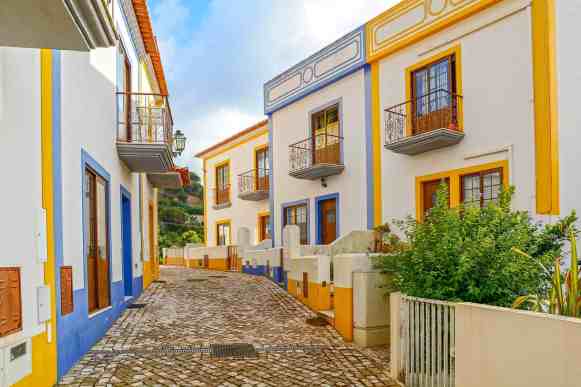


I would like to make a few observations, if you don’t mind:
In Portugal we don’t use the word “barrios”, it should be “Bairros”, and that designation is only used for a few locations. As an example, in Coimbra, Alta and Baixa are not considered bairros, at least not nowadays, they are just names for areas in the city.
As for Coimbra being a siesta city, that doesn’t make much sense and the same would be said for much of Portugal. A lunch brake is not the same as a siesta, and not everything closes for lunch, it depends on the business or public service (most public services are actually open during lunch time).
Hi Jemima
Thank you for these great articles.
I’m planning to go to Portugal, I hope in August this year. Preparing all documentation to request the D7 Visa, and your information is very helpful.
I am trying to get a suit in Coimbra, I would love to take my dog with me, but it seems very difficult, so my daughter will have to take him at least until I have an apartment.
Hi Cristina,
I am happy you want to make this wonderful country your new home! The D7 is a great option for those who intend to live in Portugal. You may also like to note that as a new resident of Portugal you will be eligible to benefit from a special tax status under the so-called “non-habitual resident” (NHR) tax regime, which will allow you to enjoy a 10-year tax exemption on most non-Portugal-sourced types of income. Lastly, another great benefit is that after (only!) 5 years, you are able to apply for Portuguese citizenship and get a European passport!
I am a lawyer at L.V.P. Advogados, a law firm based in trendy Lisboa. If you have any questions about the D7 application, please check this link: https://www.lvpadvogados.com/enquiry
Thank you,
Joana
Although, for now, I am committed to living in the UK due to work and making sure I am close to my elderly Mother – however, with medical retirement very close to hand, (I am only 57), and an obvious change of status that is not far away, I am considering moving to Coimbra. I have an advantage as my partner, who is a Portuguese native already lives just outside of central Coimbra with her family. Reading above – it would seem a no brainer once the circumstances allow. However, the one thing that really concerns me is that having severe Asthma, (hence the medical retirement from work coming up), what are the cost implications of health care especially as I have been so used to the good old NHS system here in the UK – where cost has never been a concern, (excluding dentist and opticians)?
Hi Mick,
Coimbra sounds lovely! If you are worried about healthcare costs, read our Living In Portugal guide, section ‘Is Healthcare Free In Portugal?’ https://expatra.com/guides/portugal/living-in-portugal-the-expats-guide/, you will find a bit more info there that can help. Also, while applying for the residency you won’t be able to use the SNS (Portuguese state healthcare system), you will need comprehensive private health insurance for this period to make sure you are covered and to satisfy the conditions of the residency application.